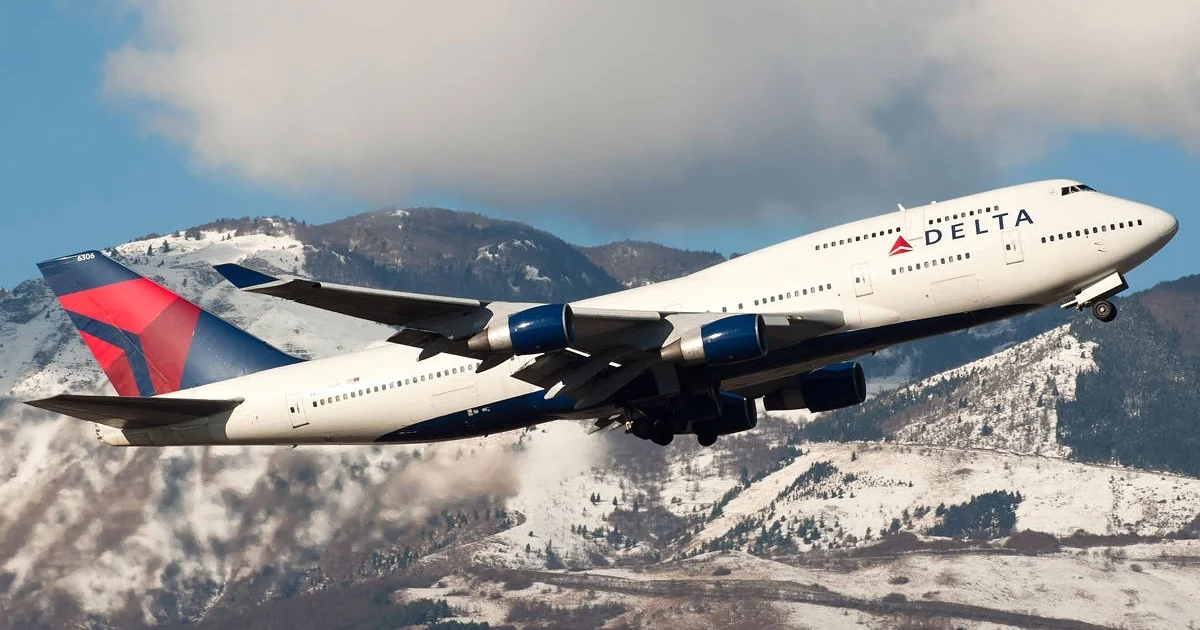Delta Air Lines has evolved from a humble crop-dusting operation to one of the world’s premier global carriers. With its distinctive widget logo and reputation for operational excellence, Delta continues to be a leader in the aviation industry, connecting millions of passengers to destinations around the world.
Southern Beginnings: The History of Delta Air Lines
Delta’s story began in 1924 when Huff Daland Dusters, a crop-dusting operation, was founded in Macon, Georgia. In 1928, C.E. Woolman, who would later become Delta’s first CEO, led a group of investors to buy the company’s dusting operations and renamed it Delta Air Service, a nod to the Mississippi Delta region it served.
Passenger service began in 1929 with flights between Dallas, Texas, and Jackson, Mississippi. The airline steadily expanded throughout the southern United States in the 1930s and 40s. Delta’s growth accelerated dramatically after World War II, and in 1953, the carrier merged with Chicago and Southern Air Lines, expanding its route network to the Caribbean.
The jet age arrived for Delta in 1959 with the introduction of the Douglas DC-8. Throughout the subsequent decades, Delta continued to grow through strategic acquisitions, including Northeast Airlines in 1972, Western Airlines in 1987, and Pan Am’s European routes in 1991. In 2008, Delta merged with Northwest Airlines in a $2.8 billion deal, creating what was then the world’s largest airline by traffic and fleet size.
By the Numbers: Delta Air Lines Stats
Delta operates as a global aviation powerhouse with impressive statistics:
- Carries over 200 million passengers annually
- Operates approximately 4,000 flights daily
- Serves more than 325 destinations in over 50 countries
- Maintains a fleet of roughly 850 aircraft
- Employs approximately 90,000 people worldwide
- Generated about $54.2 billion in operating revenue in 2023
- SkyMiles program has over 100 million members
- Operates the world’s largest global hub in Atlanta
Quick Facts About Delta Air Lines
- Headquarters: Atlanta, Georgia
- IATA Code: DL
- CEO: Ed Bastian (since 2016)
- Parent company: Delta Air Lines, Inc. (NYSE: DAL)
- Alliance membership: SkyTeam (founding member)
- Flagship aircraft: Airbus A350-900
- Livery: Red, white, and blue with the iconic “widget” tail design
- Premium cabin brands: Delta One, Delta Premium Select, First Class
- First U.S. airline to offer in-flight Wi-Fi on all domestic mainline aircraft
- Awarded “World’s Most Admired Airline” multiple times by Fortune magazine
- Mobile app offers digital concierge service and real-time baggage tracking
- Owns the Trainer oil refinery in Pennsylvania to help control fuel costs
Hub Cities: Delta’s Major Operations
Delta Air Lines operates ten major hubs across the United States and abroad:
- Hartsfield-Jackson Atlanta International Airport (ATL) – World’s largest airline hub
- Detroit Metropolitan Airport (DTW) – Major gateway to Asia
- Minneapolis-Saint Paul International Airport (MSP)
- Salt Lake City International Airport (SLC)
- New York’s John F. Kennedy International Airport (JFK) – Transatlantic gateway
- New York’s LaGuardia Airport (LGA) – Focus on domestic network
- Seattle-Tacoma International Airport (SEA) – Gateway to Asia
- Los Angeles International Airport (LAX)
- Boston Logan International Airport (BOS)
- Amsterdam Airport Schiphol (AMS) – European hub operated with partner KLM
Each hub serves specific markets and plays a strategic role in Delta’s global network.
Contact Information
For passengers seeking assistance, Delta Air Lines offers several contact options:
- Customer Service: 1-800-221-1212
- Reservations: 1-800-221-1212
- SkyMiles Service Center: 1-800-323-2323
- Baggage Service: 1-800-325-8224
- Website: www.delta.com
- Social Media: @Delta on Twitter, Facebook, and Instagram
- Mobile App: Available on iOS and Android
For business inquiries:
- Corporate Headquarters: Delta Air Lines, Inc. 1030 Delta Boulevard Atlanta, GA 30354
Soaring Forward
Delta Air Lines continues to innovate and invest in its future. The carrier has committed to carbon neutrality and is investing in sustainable aviation fuel initiatives. Delta’s fleet modernization program includes orders for next-generation aircraft like the Airbus A321neo and A330-900neo, focusing on fuel efficiency and enhanced passenger comfort.
The airline has also invested heavily in digital technology to improve the customer experience, from biometric boarding to enhanced in-flight entertainment systems. Delta’s joint ventures with global partners like Air France-KLM, Virgin Atlantic, and Korean Air have expanded its international reach and created seamless travel experiences for passengers.
Despite industry challenges including the COVID-19 pandemic, rising fuel costs, and increasing competition, Delta has maintained its position as one of the most profitable legacy carriers in the United States. With its focus on operational reliability, customer service, and global connectivity, Delta Air Lines continues to exemplify its motto of “Keep Climbing” – reflecting both its Southern hospitality roots and its global ambitions.
Whether for business or leisure, Delta Air Lines remains committed to connecting people around the world with reliability, comfort, and service that has made it one of the most respected names in global aviation.
Keyword; TopAirlines

